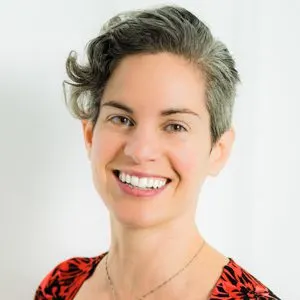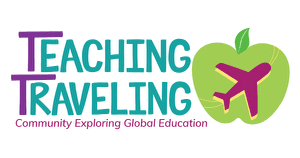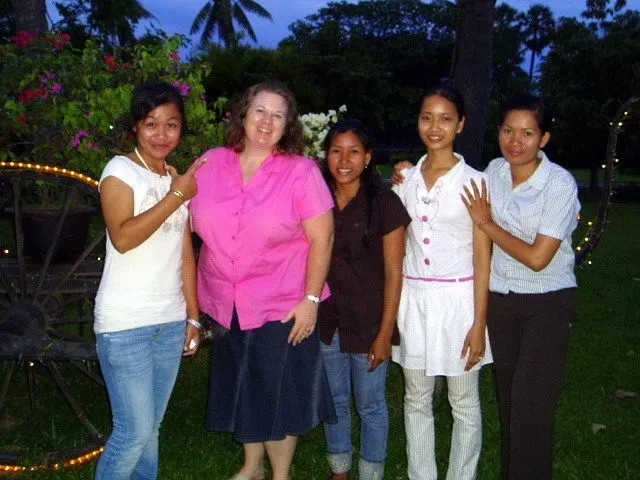
TeachingTraveling.com: Welcome, Nikki Biddison! Tell us a bit about your background.
Nikki: I’m originally from the Central Coast of California, a beautiful place that’s hard to leave for full-time living in Cambodia, but Cambodia is now my “home.”
I studied for a teaching credential in California, but public education was not fulfilling for me. Not only that, but my family kept encouraging me to use my “skills” to teach abroad, so when an opportunity arose to teach English in China for a year with English Language Institute China (ELIC ), I lept at the chance.
That year in China led to a holiday in Cambodia during the Chinese New Year, which led to returning the following November to live and teach. I taught in Cambodia from 2003 until 2007, when I returned to the United States to pursue a Master’s degree. I visited Cambodia both in 2008 and 2009, for a couple of months because I missed it so much, and finally returned “home” to stay in December 2010, once my Master’s program was completed.
I am now teaching part-time in addition to volunteering to teach Cambodian English teachers reading and writing skills, as well as assisting a local organization that focuses on responsible tourism and volunteering called ConCERT Cambodia, which I discovered in the summer of 2009 when I returned to Cambodia for my graduate internship.
TT: What an amazing story! Tell us more about your travels.
N: Since living in Cambodia, it has given me the opportunity to travel to several other Southeast Asian countries nearby, though not nearly as many as I’d like to visit. I have been to Thailand (Bangkok, Chiang Mai, Phuket, and Ko Samet), Laos (Vientiane and Luang Prabang), Malaysia (Penang and Kuala Lumpur), Singapore and Vietnam (Hanoi, Hue and HoChiMinh City).
I have also traveled a bit within Cambodia, visiting Battambang, Koh Ker temple site, several floating villages, Kompong Thom, Phnom Penh and Sihanoukville. There are still lots of places left to visit within Cambodia, as I’m hoping to get up to the mountain provinces of Ratanakiri and Mondulkiri, in addition to the river province of Kratie (home of Irrawaddy dolphins) and the coastal towns of Kep and Kampot (famous for its aromatic pepper).
However, so far, my hands-down favorite place to visit was Luang Prabang, Laos. Ever since I left I’ve been longing to head back there some day. The last time I visited was for four days in December 2004/January 2005 (the time the Indonesian tsunami hit). It was cool—no, make that cold—up in the mountains for someone who had been living in Cambodia, but that little UNESCO city was so magical.
I loved having breakfast along the riverside watching the fog lift. I could hear the river boats puttering along, but couldn’t make out their shapes until the mists slowly revealed them. That morning I took a boat ride up the river to a cave with thousands of Buddha statues placed inside of it. We stopped at a cheesy rice whisky village, but it was such a tourist trap. Luang Prabang is a walkable city with gorgeous pagodas built in a style all their own.
TT: Luang Prabang was my favorite city of my travels, too! So how did you find your Cambodia teaching opportunity?

N: Originally, when I visited Cambodia for the first time I was already teaching with an organization (ELIC), but it would have been very expensive for me to continue with them in Cambodia. As a result I looked for another way to find a teaching job in Cambodia online.
Little did I know at the time, this organization’s specialty was Thailand and had only visited Cambodia two weeks prior to my intended arrival attempting to find work for me (in other words there was no job when they accepted me). I was in Thailand for a month working on a TEFL/TESOL certification and it was slightly nerve-wracking to have no confirmation of my supposed job.
I still went to Cambodia, with little money and the drive that I need to go back “home” to Siem Reap. The organization only found a part-time position at an after school English center teaching two hours a night for six days a week earning only a percentage of what the students’ paid (which wasn’t very much). It was a meager way to earn a living for my first few months, but through my own perseverance, as the organization eventually broke their contract with me because they couldn’t fulfill their original obligation, I managed to find two teaching positions at the top English language schools in Siem Reap.

In the end, I would not recommend this group as I discovered they offered a teacher placement program for a country they had absolutely no experience in, nor anyone in-country to be able to help me if something came up. In other words, I was alone and left to fend for myself.
Sure they did provide some cash for me to take a bus across the border and a mobile phone, but I was totally on my own to figure everything out for myself. I ended up not being paid their standard minimum so I had to fight to be “subsidized” for only two months. After that they cancelled my contract unless I left Cambodia to work in Thailand.
TT: Good advice. How did you find the money to fund your travel?
N: To finance my move to Cambodia, I had raised money through friends and family to support my program costs of the placement organization, TEFL training program, and to cover emergency insurance. After all I was going to teach in a developing country, so why not involved others in my latest endeavor.
Since I’ve been here, I have also taken unique Cambodian items back home with me for some small fundraisers to continue or support projects in a few villages that I became involved with. The rest has been self-funded through working to cover my expenses.
TT: Brilliant! Tell us one moment from your travels that was particularly powerful or interesting.

N: I remember one day we drove out to the distant countryside to take my friend’s sister to the house where she would be living as a first time teacher. She had just finished teacher training school and her first job was more than an hour away from home.
For young women in Cambodia who are raised to stay close to home, this was a significant event. Upon arrival, the sister and mother and I were immediately involved in preparing lunch. While I was peeling and chopping the garlic, I wondered to myself why the “guests” would be preparing the meal for the “hosts.”
Thankfully I held my judgment because as I later realized, since the sister would be living with this family, our preparation of the meal was a demonstration of her skills and contribution to their household.
While we were the guests, the family would be going out of their way to allow her stay with them which meant one more mouth to feed. It was a great reminder for me to be more involved in helping out when I am a guest in someone’s home, rather than just wait to be served.
TT: How have your travels impacted you, both as a person and as a teacher?
N: Traveling has broadened my perspective of students’ perceptions. It has given me greater understanding and patience for a wider variety of individuals who I meet. Students are also surprised that I seem to know so much more about their cultures, but it all comes from the experiences in being a so many different cultures.
Because of this, it has been rather difficult when I’ve been back in the United States to find work that meets such open worldviews. Additionally, I have found that working in such closed environments is very limiting. I like being an English language teacher. There are always fresh students who are eager to learn and have their light bulb turned on.
At the same time, I have found that many folks back “home” have such limited world views that it is rather difficult to hold any meaningful conversations about anything more than creature comforts. I simply don’t feel comfortable in such “modern” environments because I have seen the reality of many parts of the world where people are living with very little and are seemingly content.
It also spurs me on to utilize my experience of growing up with choices and opportunities so that I can pass on the impetus for change and growth in my students’ lives.
TT: What advice do you have for other teachers who are dreaming of travel?
N: I would highly recommend making a commitment to traveling outside of one’s home town, especially of one’s home country. Visiting and/or living in another place that is different from yours is challenging. It challenges your logic, your worldview, and especially your preconceived notions of what it means to be a human on this planet.
Patience and flexibility are the keys to survival in a new environment. Also, just because you’ve always wanted to go somewhere doesn’t mean it’s going to be the best fit. Be willing to give something a chance, but also be ready to move on if it just isn’t working out instead of letting it fester and create an extraordinary amount of frustration or ill feelings.
I have found Dave’s ESL Café to be an endless supply of quality information for English language teachers. There are lots of additional links from there, in addition to teaching resources and job hunting information.
Also, while I did not utilize this when I first started teaching English abroad, and maybe it did not even exist then, but I have found Couch Surfing to be an excellent resource for meeting people from different backgrounds and interests.
It also allows you to check in with the “locals” or local ex-pats who are living in an area that you will be visiting or even moving to, in order to pick up some firsthand knowledge about that location. I have recently met two of my current teaching colleagues through Couch Surfing and we often spend time outside of school together so it provides an instant social network when you arrive in a new town.
TT: Great tips. Thanks so much, Nikki! Readers, what questions and comments do you have for Nikki?

The author, Lillie Marshall, is a 6-foot-tall National Board Certified Teacher of English from Boston who has been a public school educator since 2003. She launched TeachingTraveling.com in 2010 to share expert global education resources, and over 1.6 million readers have visited over the past decade. Lillie also runs AroundTheWorld L.com Travel and Life Blog, and DrawingsOf.com for educational art. Do stay in touch via subscribing to her monthly newsletter, and following @WorldLillie on social media!



